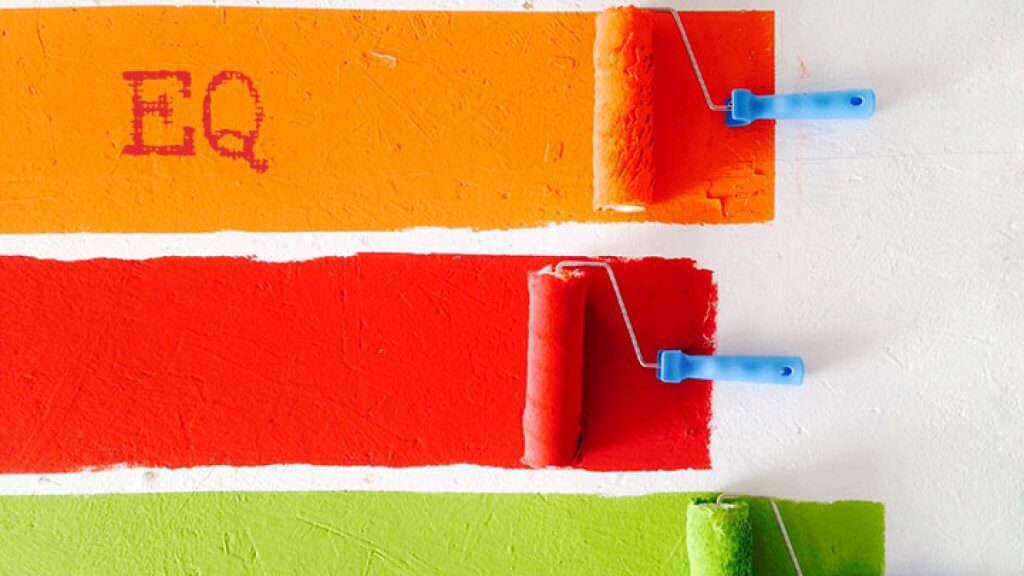EMOTIONAL INTELLIGENCE
For many, it’s just another business buzzphrase that will be relevant only until the next fad comes along. But as more businesses and people begin to take emotional intelligence, or EI, more seriously, the importance of the concept is becoming harder and harder to ignore
Emotional Intelligence is a skill that helps people manage their emotions, actions and relationships without a second thought. Those with a higher EI find they can navigate through life as if hiking with a map instead of stepping carefully through a minefield. Learning emotional intelligence can be a life-changer when it comes to health and wellness in our everyday lives
According to Merrilee Associati, a Mental Health Registered Nurse at Hôtel-Dieu Grace Healthcare’s Transitional Stability Centre, EI is a skill that helps you recognize your own emotions and those of others, as well as how those emotions affect your feelings and behaviours
“It is a very important tool that can help combat mental illness and create strong mental awareness,” she said. Many people become emotionally dysregulated and understanding our own emotional intelligence and where to improve can help build the resilience one needs to cope
“Being more aware and taking responsibility for our own thoughts and behaviours can develop and improve our EI,” said Associati.
With emotional intelligence we can make changes within ourselves rather than seek outside help or, in some cases, medication. EI can help keep us in a state of wellness and living our daily lives better prepared for mental health issues that may arise
Here are the four main components of someone who has Emotional Intelligence:
1) Self-awareness
You recognize your own emotions and how they affect your thoughts and behaviours. You know your strengths and weaknesses and have self-confidence.
2) Self-management
You are able to control impulsive feelings and behaviours, manage your emotions in healthy ways, take initiative, follow through on commitments and adapt to changing circumstances.
3) Social Awareness
You can understand the emotions, needs and concerns of other people, pick up on emotional cues, feel comfortable socially and recognize the power dynamics in a group or organization.
4) Relationship Management
You know how to develop and maintain good relationships, communicate clearly, inspire and influence others, work well in a team and manage conflict
You might be at a place in your life where you consider yourself pretty successful, with everything you’ve been working to achieve coming to fruition. You know who you are, you know your strengths and weaknesses. You can read people like a book and you have great empathy for those around you. You are emotionally intelligent
But if an unexpected trauma hits, your world could be blown apart. Your emotions, reactions and interactions with others may not line up with your core beliefs of who you are as a person. When your life blows up in front of your face, those calm healthy decisions and behaviours can go straight out the window. Are you going to let this incident stop your life? Or will you be willing to learn from it?
Here are some questions to get you thinking about your own emotional intelligence:
You are on an airplane that suddenly hits extreme turbulence. What do you do?
A) Continue what you are doing, paying little to no attention to the turbulence.
B) Become vigilant, watch the cabin staff and read the emergency instructions card.
C) A little of both A&B.
You took a test on which you thought you would get an A but you received a C-. How do you react?
A) Make a plan to improve your mark and follow through with it.
B) Decide it doesn’t matter how well you do in the class—focus on classes where your marks are higher.
C) Decide you don’t have what it takes for this career.
You are trying to calm a friend who is enraged because someone cut her off in traffic. What do you do?
A) Tell her about an incident where you were angry until you saw they were heading to the hospital.
B) Join her in criticizing the other driver.
C) Tell her to forget about it; after all, she is okay now, so it’s no big deal.
A discussion between you and your partner has escalated into a screaming match with personal attacks. What do you do?
A) Agree to take a 20-minute break before continuing the discussion.
B) Stop for a moment, collect your thoughts and restate your side.
C) Go silent, regardless of what your partner says.
These questions are a short snippet from the quiz given at the Transitional Stability Centre Wellness program to get clients looking into their own emotional intelligence. The more A’s you answer, the higher your emotional intelligence.
Associati explains that when you start to become more self-aware and begin using self-regulation techniques to manage your relationships, you notice the positive impact on your life, which is the ultimate goal.
“You no longer use the primitive part of your brain where those automatic thoughts take over and react for us. This area in our brain, called the amygdala, controls our flight, fight or freeze reaction and we really don’t want to use that in times of high stress,” said Asociati. “We want to use the frontal lobe of our brain, the executive function, where we are able to say ‘hey wait a second, what is an appropriate choice or response,’ and being emotional intelligent helps us do that.”
Improving your EI is a lifelong journey with ebbs and flows along the way. Associati says she has patients well into their 70s who have been able to develop their EI to improve their daily lives, so it’s never too late to start. Learning these skills can help with every aspect of life, from mental health to parenting to networking, from office politics to leading a team to greatness or just killing it at the poker table. It all begins with recognizing the areas we need to improve. One new choice, one brave moment, one step closer to a better life.



